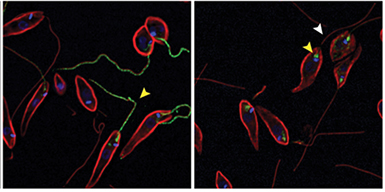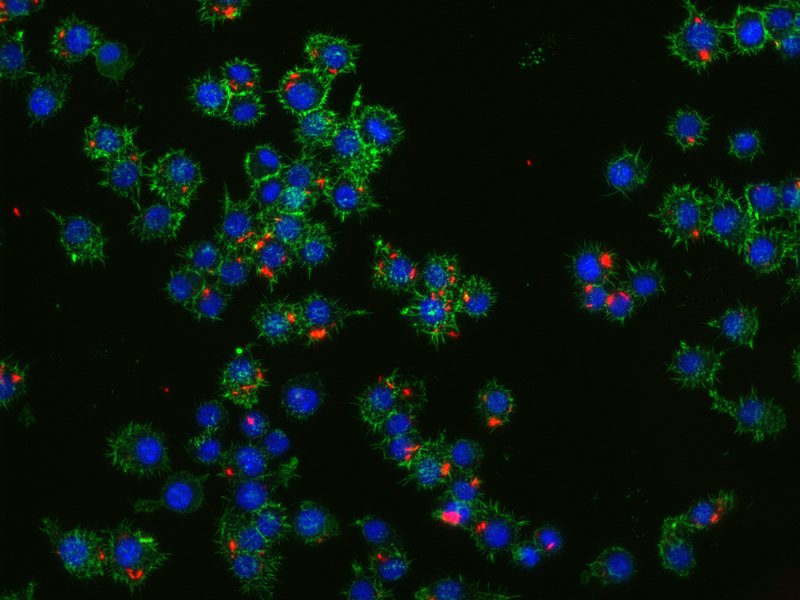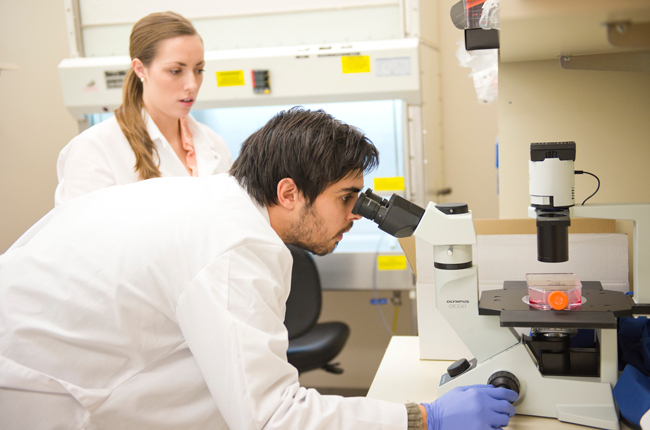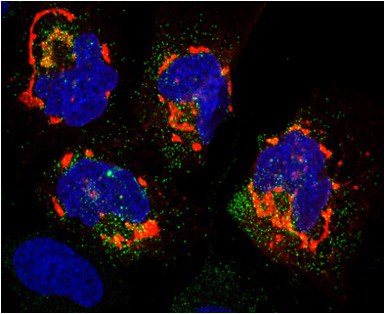NIH Training Grant
'Interdisciplinary Training in Microbial Pathogenesis and Immunology'
Discover more about this NIH-supported T32 training grant at Oregon Health & Science University.

Program description
The training program ‘Interdisciplinary Training in Microbial Pathogenesis and Immunology’ at the Oregon Health & Science University in Portland, Oregon is supported by the National Institutes of Allergy and Infectious Disease since 2023. The objective of this program is to provide enhanced interdisciplinary scientific and career training to graduate students and postdoctoral fellows working with infectious microorganisms and/or immune responses against pathogens. A non-inclusive list of active areas of scientific investigation include:
- Bacteria: Mycobacterium tuberculosis, Bacillus anthracis
- Viruses: Human Immunodeficiency Virus (HIV), Simian Immunodeficiency Virus (SIV), Herpesviruses, Poxviruses, Dengue, Zika, Chikungunya and West Nile viruses, Enteric viruses
- Parasites: Leishmania, African trypanosomes, malaria, Toxoplasma
- Immunology: Innate and adaptive immune responses to infections, B cells, T cells, macrophages, dendritic cells, chemokines and cytokines, interferons, vaccine development.
Approaches
Approaches are highly diverse and interdisciplinary and include the following:
- bacterial genetics
- molecular virology
- molecular parasitology
- biochemistry and molecular biology
- chemical biology and drug discovery
- x-ray crystallography
- proteomics
- genomics
- bioinformatics and systems biology
- animal models including non-human primates, etc.
Collaborators
Although this training grant is sponsored by the Department of Molecular Microbiology & Immunology, faculty mentors associated with this program come from a diverse group of basic science departments, clinical departments, research institutes and associated institutions, including:
- Departments: Molecular Microbiology & Immunology, Biochemistry & Molecular Biology, Physiology/Pharmacology, Cell & Developmental Biology, Molecular & Medical Genetics, Medicine, Pediatrics
- Institutes: Vaccine & Gene Therapy Institute (VGTI), Oregon National Primate Research Center (ONPRC), Earle A. Chiles Research Institute;
- Associated Institutions: Portland Veterans Administration Medical Center, Pacific Northwest National Laboratory.

Training Grant Faculty Mentors
Eligibility for support by this training grant
This training program supports a total of 6 graduate student and postdoctoral trainees at the Oregon Health & Science University (OHSU) in Portland, Oregon.
- Trainees must be graduate students or postdoctoral fellows working in the laboratory of one of the faculty mentors who are part of this training program and thus must already have been accepted into one of those laboratories at the time they apply for support by this training grant.
- Graduate students or postdocs working in laboratories that are not specifically associated with this training grant are not eligible to apply for support from this program.
- Trainees at the postdoctoral level may apply for support from this program if they have received a formal offer from one of our faculty mentors to join their laboratory, even though they may not yet be working in that laboratory.
Application for training grant support
- Applicants must submit a formal application in response to the Request for Applications (RFA) released in April or May of any particular year.
- Typically, such applications are due in mid-July for award of training grant support that initiates in September.
- Support of trainees is typically for a period of 2 years and includes a stipend at the designated NIH level plus some additional funds to be used for short training programs, attendance of scientific meetings, or supplies to support the trainee’s research project.
- Trainees are especially encouraged to use these funds for activities that will enhance their training (e.g., specialized training courses at other institutions or visits to the laboratory of a collaborator to learn methodologies) or increase their exposure within their disciplines (e.g., attending a national or international scientific meeting).

Diversity
This training program is actively committed to providing training opportunities for candidates from diverse backgrounds. Women, minorities and persons with disabilities are strongly encouraged to apply.
Program activities
A major component of this training grant is the participation in Career Development Meetings, about 6-8 of which are scheduled during each year. These meetings entail informal discussions with one or several scientists working in a diverse array of scientific careers.
The objective is to introduce trainees to a broad range of careers they may wish to consider as Ph.D.-level scientists and to help them build networks in relevant professional disciplines. Guests typically describe what type of work is carried out by scientists in each discipline, how one learns about each type of career, how one prepares to apply for and secure employment in each area and how to network with professionals in each discipline to promote entry and advancement. Career disciplines covered include:
- Faculty positions at research universities.
- Faculty positions at teaching oriented colleges and universities.
- Careers at national laboratories.
- Careers in biotech, pharma.
- Technology transfer.
- Public health and epidemiology.
- Science publishing, pharmacy schools, veterinary schools, etc.

In addition, each trainee presents an annual seminar covering their research project. An annual written 2-page progress report is also required. Trainees are expected to enroll in the Scientific Writing Course offered by OHSU. This class meets 4 times for 2.5 hours each time and includes 6 individual tutorials where trainees work with the instructor on a paper or grant of their own. The objective is to promote facility in writing scientific papers, reports and grants.

Training Grant Directors
Isabella Rauch, Ph.D.
Scott Landfear, Ph.D.
Patrizia Caposio-Nelson, Ph.D.
Jonathan Pruneda, Ph.D.
Inquiries
Contact Amber Brunner for the schedule of the next request for applications and for details about applying for training grant support.